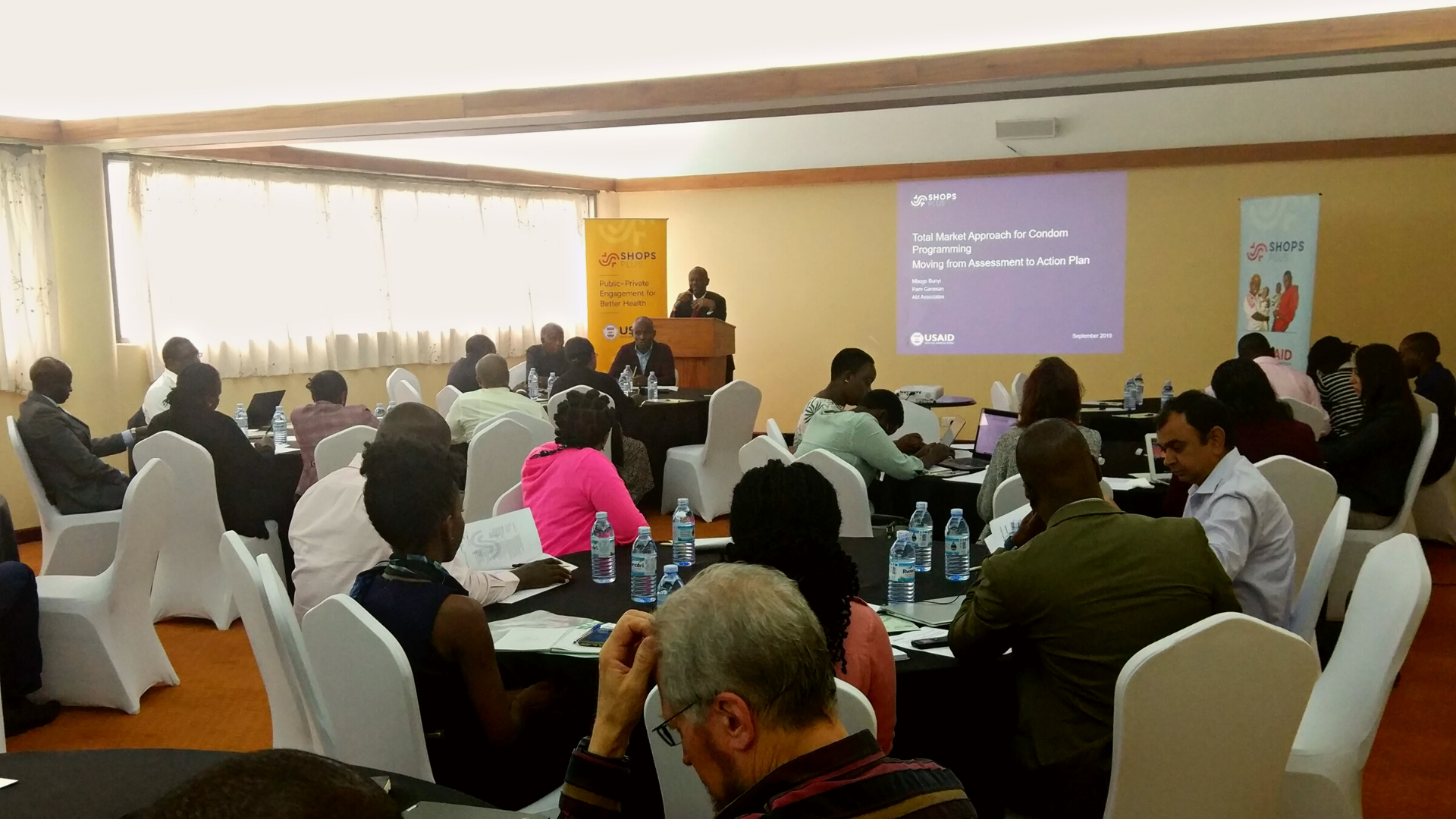Readying the market for HIV self-test kits
SHOPS Plus and its partners in Uganda expanded the market for new HIV self-test products. Using a market development approach, the project convened public and private sector actors to develop a roadmap for building a healthy market for the products—one that uses the private sector supply chain and creates a space for private sources to complement public sector efforts. Market-based approaches aim to analyze and understand whole markets (public and private sector) to increase use and improve the equitable and sustainable supply of key health commodities. This work led to policy changes that supported the introduction of HIV self-tests in Uganda’s private sector.
Understanding the challenges of a health market
SHOPS Plus worked closely with industry stakeholders to conduct a market assessment and analyze the market for gaps and opportunities. The project established that HIV self-testing services had been rolled out in the public sector facilities successfully, while private sector contributions lagged behind. Data showed that there was a testing gap among men and other key populations who had remained difficult to reach through public channels. Data and research indicated that these segments valued privacy and convenience, indicating that they might be best reached through an HIV self-test sold through a private retail outlet.
A WHO prequalified HIV self-test kit was already registered in Uganda for use in the public and private sector. The policy environment also supported expanding HIV self-tests with updated guidelines in place. However, successfully introducing the product in the private sector required addressing a prevailing market practice in which HIV test kits meant for facility-based testing were inappropriately removed from bulk packaging and sold for individual use as low-priced self-test kits. This practice put consumers at risk as the test kits were often incomplete and sold without reagents or instructions. It also limited the market potential for WHO approved HIV self-test kits. SHOPS Plus proposed steps to address this practice and create space in the market for the sustainable introduction and supply of WHO-approved HIV self-test kits.
Convening market actors for results
SHOPS Plus convened a multisectoral stakeholder workshop in September 2019 to present market assessment findings, elicit discussion, and review a proposed market vision, including next steps to support greater availability of HIV self-tests in the private sector.

Vinand Nantulya, a former chair of the Uganda AIDS Commission and the Global Fund country coordinating mechanism, was instrumental in organizing the workshop. He offered this observation about the market assessment,
"In a fully functional health system, both the public and private sectors must act in a complementary manner to achieve equitable access to the services by all the people in the community. To achieve this in a sustainable way, the policy and practice must be driven by evidence. This is what SHOPS Plus has ably demonstrated here."
Spurred by the SHOPS Plus market analysis, public and private sector actors took action that resulted in significant market changes.
As of June 2021, the Ministry of Health has:
- Strengthened regulations regarding the sale and use of HIV test kits intended for facilities. Guidelines now prohibit the inappropriate use of this type of test kit for self-testing. This revised guidance and its continued enforcement will create room for the appropriate use of the correct test kits for HIV self-testing.
- Negotiated for a lower price of private sector targeted HIV self-test kits on behalf of the importer. This move enables private distributors to bring in and sell HIV self-tests through the commercial sector, at commercially viable prices, that are more affordable to a wider range of clients.
- Expedited the registration of additional WHO pre-qualified HIV self-test kits for use in the private sector.
These market factors—regulations, affordable prices, and additional approved kits—will increase choice and competition for a healthier HIV self-test market in Uganda.